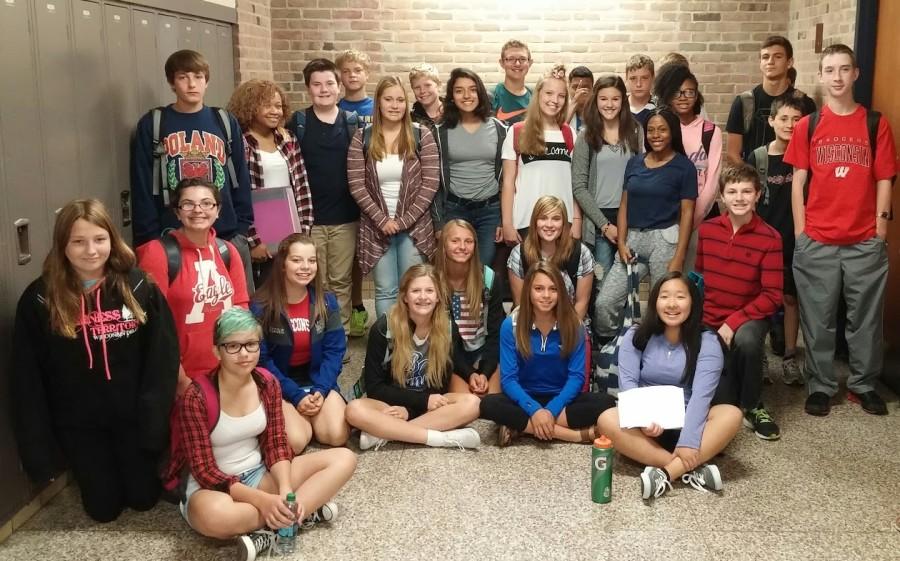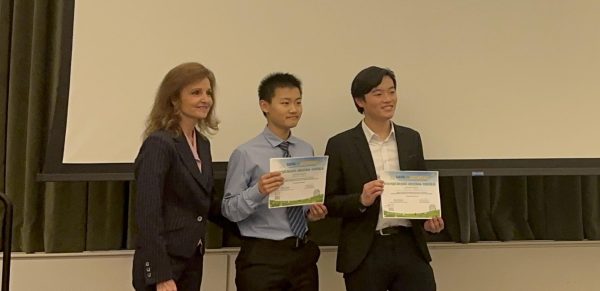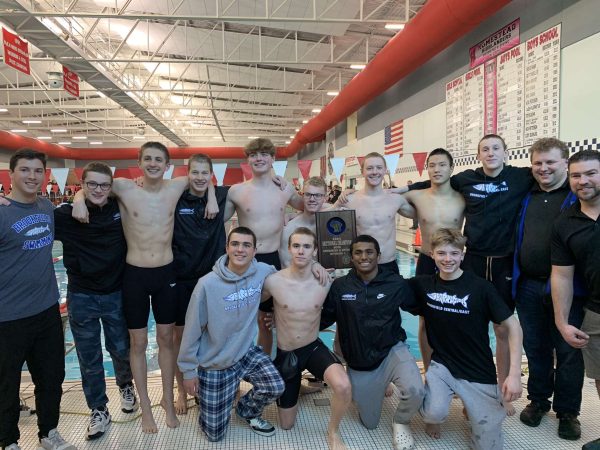AVID is introduced to BCHS
Mrs. Hintz’s class of aspiring freshman include: Anita Ayala, Malcolm Balles, Julian Banda, Taelyn Bintzler, Ashley Borowski, Julia Craig, Luke Eddingsaas, Connor Ellis, Owen Eppel, John Falta, Jada Griffin, Chloe Heyden, Collin Heyden, Isabella Kayzar, Chloe Krueger, Noah Mayeshiba, Kenneth Mendoza, Emily Metzinger, Garrett Miner, Kemari Moore, Madison Nichols, Macy Oleszczuk, Ariana Peterson, Sydney Smith, Jacob Stamn, Alexander Stephens, Eva Vang, Tatiana Washington, and Daniel Yurk
Among the many new changes that BC has brought to the 2015-2016 school year, like the Lancer Block, the improved school lunches, and Chromebooks, the AVID program has made its first appearance, using a class of 30 freshmen students as its debut emergence.
AVID, an acronym for Advanced Via Individual Determination, is a program devoted to doing just that: providing the tools, skills, and habits to determined students, or students who want to change their academic performance for the better.
Mrs. Sabrina Hintz, the AVID supervisor and student achievement enthusiast, says “[AVID] is a group of 30 kids who will move through all four years, go through a different curriculum every year, but all geared towards college and career readiness.” With this every-other-day support basis, the AVID students can rely on the program to provide them with the aid that they need to achieve their higher personal goals.
Yet, how does the AVID program go about doing this? Mrs. Hintz explains the ‘tutorial’ process within the AVID classroom, in which the students gather into small groups and, if a student is confused about a concept or has a question, they are able to ask their small group for clarification. In response, the small group does not simply answer the question, but asks higher level questions in order to help the student come to their own conclusion, benefitting the student who was unclear in the first place and the students answering the question, as it forces them to formulate higher level reasoning. In addition, the students are required to take Cornell-style notes in every one of their classes and are expected to keep all of the notes and classroom handouts in a two-and-a-half to three inch binder.
“I know the amount of work I’m asking [the students] to do, that for some [students], they don’t see the point yet,” says Mrs. Hintz, “It’s my job to keep encouraging them and show them that over time it’s going to be of value.” For the rest of the year, and for the rest of the students’ four years in the AVID program, Mrs. Hintz will continue to hold these high expectations and hold their determination that runs the entire program.
“I think that AVID will help me through high school mainly because of its organization, because if you’re unorganized then Mrs. Hintz will get on you,” Alex Stephens (‘19), an AVID student, comments, “and it’s a lot of work, but I think in the end it will help out with mostly organization and logical thinking.”
Mrs. Hintz definitely holds high expectations for the AVID students, but with the persistence and determination that both, Mrs. Hintz and the students hold, the benefits and skills are bound to be exposed sooner or later. The program launched off to a successful first start, and only time will portray the positive aspects of the program seen in the students.











